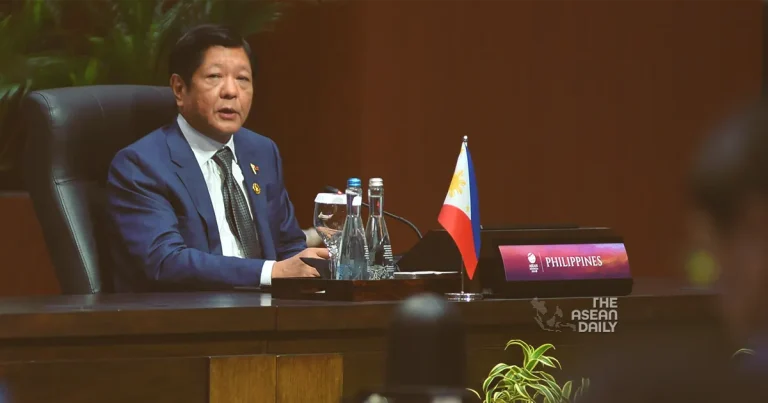8-9-2023 (JAKARTA) Philippine President Marcos has urged leaders in East Asia to address the “dangerous use” of coast guard and maritime militia vessels by China amid Beijing’s increasing aggression in the South China Sea. Marcos made the call during the 18th East Asia Summit in Jakarta, which was attended by Chinese Premier Li Qiang, Australian Prime Minister Anthony Albanese, Indian Prime Minister Narendra Modi, Japan Prime Minister Fumio Kishida, South Korean President Yoon Suk Yeol, and US Vice President Kamala Harris. Marcos also expressed concern over China’s illegal, unreported, and unregulated fishing and the militarization of reclaimed features in the South China Sea, which have violated international law, including the 1982 United Nations Convention on the Law of the Sea.
The Philippines, which has territorial waters in the South China Sea, has been involved in a longstanding maritime dispute with other countries such as Vietnam, Malaysia, Brunei, and Taiwan, with China claiming almost the entire resource-rich waters. Despite an arbitral court in The Hague voiding China’s expansive maritime claim in 2016, the Chinese government does not recognize the ruling.
During the summit, Marcos also emphasized the importance of creating conditions for diplomatic solutions to problems of nuclear threats stemming from Russia’s invasion of Ukraine and North Korea’s ballistic missile test. Marcos called on the Democratic People’s Republic of Korea to comply with all relevant UN Security Council resolutions towards the realization of lasting peace and stability in a denuclearized Korean Peninsula, and urged all countries to play a constructive role in contributing to this endeavor.
Marcos also received reassurance from the US of its “ironclad” commitment to its alliance with the Philippines during a meeting with Vice President Harris. The two leaders discussed the maritime security environment in the South China Sea and reviewed opportunities to enhance bilateral maritime cooperation, including alongside like-minded partners.
The Philippines and Australia also strengthened their alliance with the signing of a strategic partnership agreement. The move comes as both countries aim to counter China’s growing regional influence. The agreement seeks to expand cooperation in various areas, including defence and security, climate change, and education. Marcos thanked Albanese for Australia’s “active engagement” in maritime-related issues and concerns in the region.
As part of its defensive posture, the Philippines has also expressed hope for the participation of other countries, including Vietnam, in a multilateral mechanism for preventing hostilities or untoward incidents in the South China Sea.




